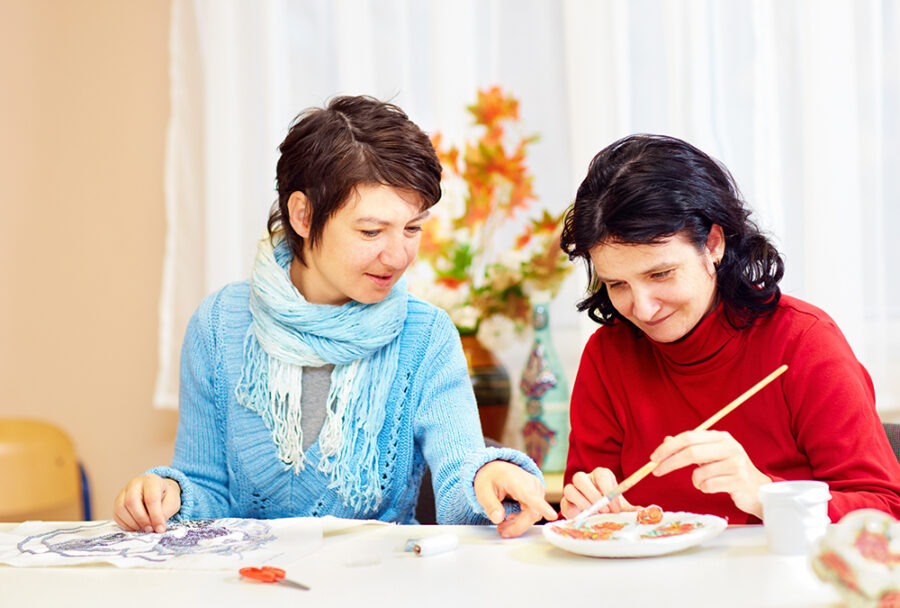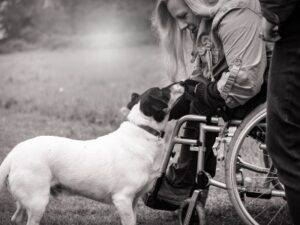Currently, there are over 11 million Americans providing long-term unpaid care to adults between the ages of 18 and 49, according to the National Alliance for Caregiving. Many of those are parents of adult children with disabilities. While most of us think about caring for our aging parents or even a spouse when we get older, there are those of us right now who are caring for our disabled adult children, and sometimes it is hard to know where to turn for help and support.
Here are 6 things that parents of adults with special needs worry about:
Who will Care for our Child When we’re Gone?
This is the big one. This is the question that keeps us up at night gripped with worry and fear. We know how much we love our child. But we worry if our friends or family will willingly take on the role of caretaker after we’re gone. It’s a big job, and a fulfilling one for sure. Yet, it’s something that requires a very special kind of person, and not everybody is equipped to take on that role.
Finances
Finances are a never-ending concern. The state allows for limited funding for disability, and the amount that is awarded by Social Security is not nearly enough for our adult special needs children to live on. Yet setting up a trust or an account is worrisome, too, as it can disqualify our child from receiving benefits if not done properly. We want to know our child will be provided for, yet not everybody and every family has the means to set up financial security for an adult special needs child when they pass on.
Relationships
My sweet special needs child is incredibly trusting and wears his heart on his sleeve. He doesn’t always pick up on when somebody is being mean (surprisingly, there are still people who get their laughs at the expense of a special needs person) or their intentions aren’t the best. While a lot of people may struggle to sort out whether somebody’s intentions are pure, I know in most cases whether somebody has a genuine interest and concern for my child, or they are using him for a laugh thinking he’s too naïve to figure it out. When my partner and I are gone, we worry about who will be there to help guide our child and offer advice on these sorts of relationships. Who will steer him away from the bullies out there?
Feeling Inadequate
We’re (mostly) past the part where we blame ourselves for our child’s disability. Though there are still plenty of those moments still. No, mostly we worry about wondering if we’re doing enough. Is our child happy? Are they well adjusted? Are we doing everything we can as parents to make them as independent as possible? Am I a bad parent because I didn’t push harder for certain things?
Our Relationships with Others
This is another big one. For parents with adults with disabilities, our lives are still very much focused on the needs of our child. In many ways, it’s like we are perpetually parenting an elementary schooler. As our own age climbs into the 60’s and 70’s, we find we’re still doing a lot of things other parents our age are doing with grandchildren. We are our own little island at times, and other parents don’t generally know what it’s like for us. It means our relationships with others who aren’t in our situation become strained and difficult at times.
Resentment
This is a big one. And for a long time, I felt like maybe I was the only parent in the world who felt this way, and it worried me tremendously. And then when I spoke with other parents of adults with disabilities, I learned that my own occasional resentment is completely normal. There have been fleeting moments when my adult son would be having a meltdown—flailing his 150 pounds of mass in all directions with nothing I could do to stop it, and I’ve thought for a fraction of a second that I wish my son was not disabled. And then the guilt that follows can be all-consuming. We worry about those feelings because we think to ourselves our friends whose kids don’t have disabilities never think those things. The truth is, every parent has those moments. And we all need to cut ourselves some slack.
These 6 things that parents of adults with special needs worry about really only scratch the surface. It would be difficult to put into words the everyday worries that run through our minds. Much like any parent, we have the regular everyday worries. But then those worries are compounded by the care and needs of a child or adult with special needs. One thing to know, though, is that we love our children very much and no matter what our worries every day, we would not change them for the world.






my grandson lives in johannesburg He is 23 and an excellent driver with a PDP licence and even holds a driving instructors licence He is in the autism spectrum and desperately wants and needs a job somewhere in johannesburg
He is totally honest and trustworthy He is kind and empathic and extremely helpful
Please give him an opportunity to do , inter alia,!your collections and deliveries of parcels or tracking services He has a car, a computer, and a smart phone He can be trained to use an appropriate programme Any suggestions to find employment would be appreciated
I don’t have a child with a disability but I do have little cousins who have a disability and students. I worry all the time about who is going to care for my cousins children if something would happen to her but than I think of myself and how I already help her and will always be there.